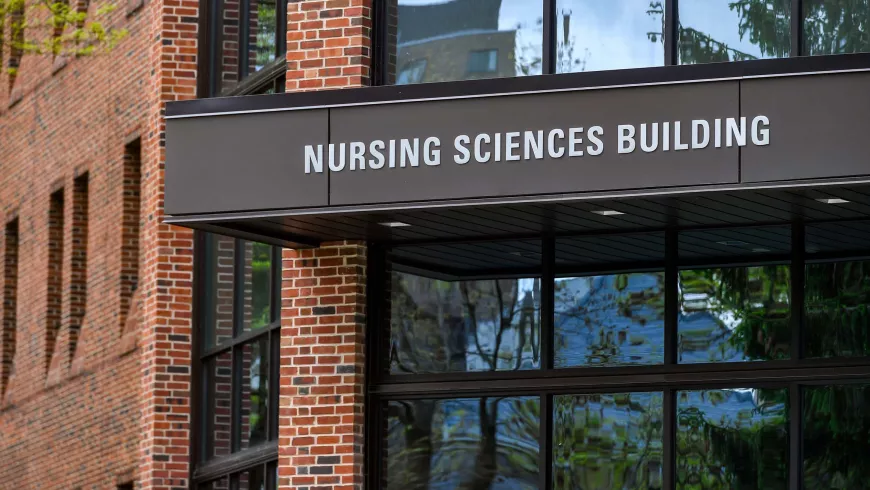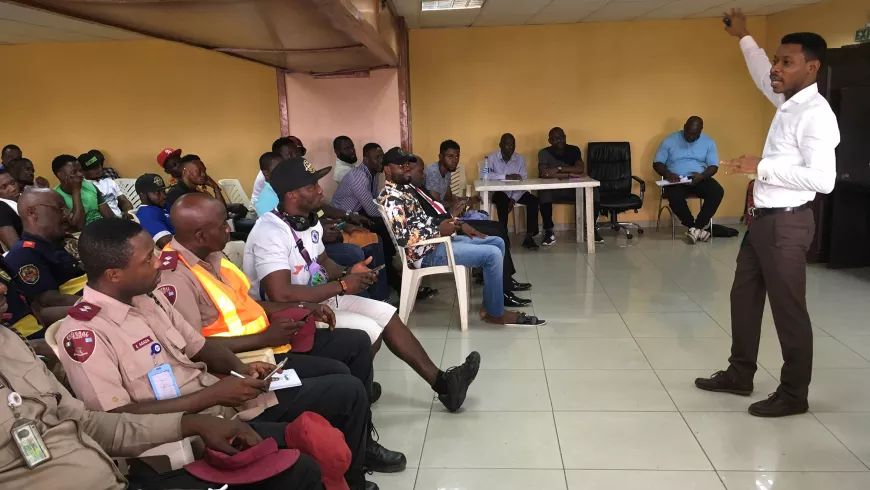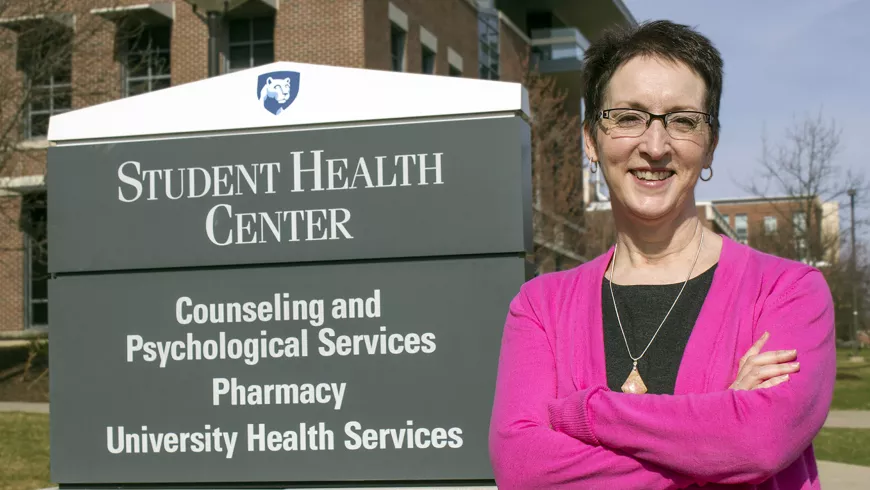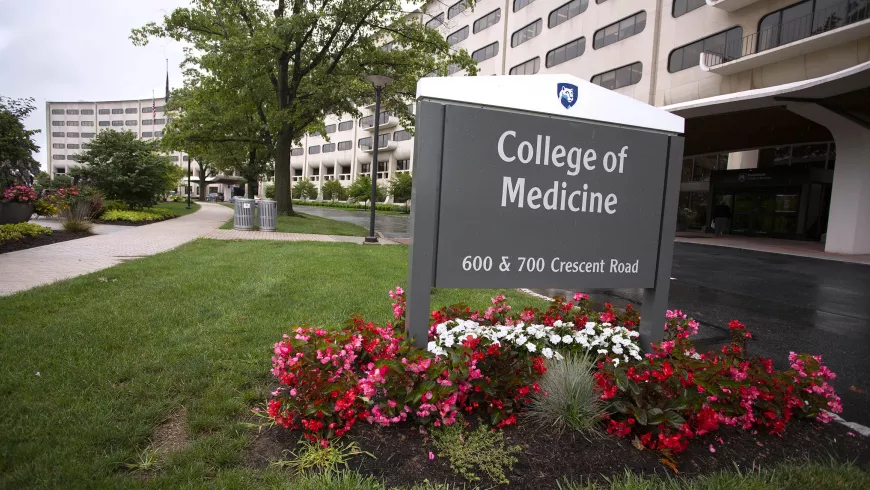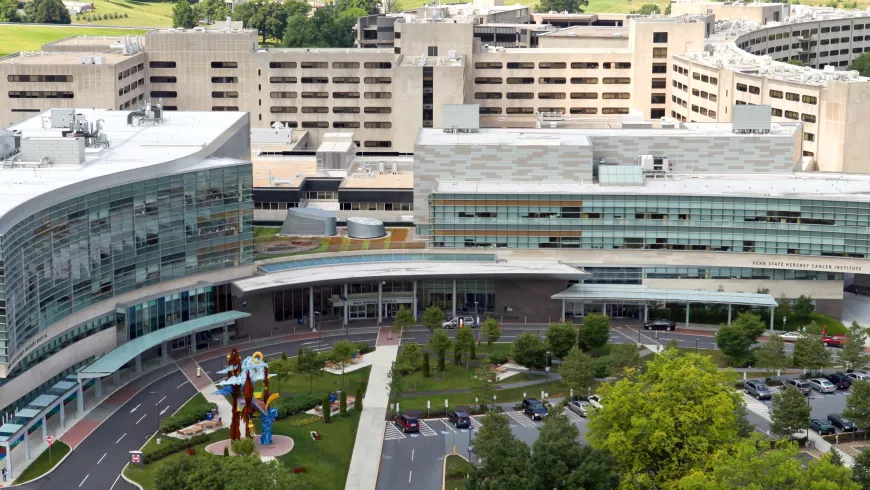100% Online
Complete your Penn State course work at your own pace and 100% online.
Application deadline
Credits and costs
Gain Skills to Lead during a Public Health Emergency
Apply basic epidemiologic principles and methods.
Identify major organizations, agencies, and policies that substantially affect the practice of public health preparedness.
Prevent, mitigate, and respond to natural and man-made disasters.
Design, implement, and evaluate evidence-based approaches to safety and emergency management.
Public Health Preparedness Courses
Public Health Preparedness Courses
This 12-credit graduate certificate program builds your knowledge in these areas:
- the principles of hazard analysis and incident management
- disaster readiness planning and coordination
- protection of critical infrastructure against disaster and terrorist emergencies
- the political, legal, psychological, and social aspects of disasters
Required Courses (12 credits)
- 3credits
Analyzes the history of terrorism and explores the preparation and response to specific terrorist threats, natural disasters, and conventional catastrophes.
- Prerequisite
Enrollment in the homeland security degree or homeland security certificate, or permission from the instructor
- 3credits
A public health perspective on the preparation necessary to develop a coordinated response to a disaster or terrorist emergency.
- Prerequisite
Permission from the instructor
- 3credits
Introduces students to the design of exposure assessment and health effect studies applicable to disasters and terrorism.
- Prerequisite
PHP 510 or permission from the instructor
- 3credits
Examines the complexities involved in the protection of health care delivery systems affected during a natural disaster or terrorist attack, including the impact of disrupted transport systems, computer and Internet security, communications, energy supply, industry, and governmental institutions.
- Prerequisite
PHP 510 or permission from the instructor
Course Availability
If you're ready to see when your courses will be offered, visit our public LionPATH course search (opens in new window) to start planning ahead.
Start or Advance Your Career

Start or Advance Your Career
You can use the knowledge gained from this program and the support of Penn State career resources to pursue careers in a variety of fields, depending on your goals.
Career Services to Set You Up for Success

From the day you're accepted as a student, you can access resources and tools provided by Penn State World Campus Career Services to further your career. These resources are beneficial whether you're searching for a job or advancing in an established career.
- Opportunities to connect with employers
- Career counselor/coach support
- Occupation and salary information
- Internships
- Graduate school resources
Ready to Learn More?
Get the resources you need to make informed decisions about your education. Request information on this program and other programs of interest by completing this form.
Ready to take the next step toward your Penn State graduate certificate?
Costs and Financial Aid
Costs and Financial Aid
Learn about this program's tuition, fees, scholarship opportunities, grants, payment options, and military benefits.
Costs and Financial Aid
Graduate Tuition
Graduate tuition is calculated based on the number of credits for which you register. Tuition is due shortly after each semester begins and rates are assessed every semester of enrollment.
2024–25 Academic Year Rates
| How many credits do you plan to take per semester? | Cost |
|---|---|
| 11 or fewer | $1,027 per credit |
| 12 or more | $12,325 per semester |
2025–26 Academic Year Rates
| How many credits do you plan to take per semester? | Cost |
|---|---|
| 11 or fewer | $1,037 per credit |
| 12 or more | $12,448 per semester |
Paying for Your Certificate
Students pursuing a certificate are considered "nondegree," a status that is not eligible for federal student aid, including the Federal Direct Stafford Loan program. A private alternative loan may be an option to consider.
Additionally, Penn State offers many ways to pay for your education, including an installment plan and third-party payments. Penn State World Campus also offers an Employer Reimbursement and Tuition Deferment Plan. Learn more about the options for paying for your education.
Students pursuing a degree and meeting all other eligibility requirements may qualify for financial aid.
Military Benefits
Military service members, veterans, and their spouses or dependents should explore these potential military education benefits and financial aid opportunities, as well.
Additional Cost of Attendance Details
To view the detailed list of cost of attendance elements:
- visit the Tuition Information site
- click the plus sign to expand the table
- select a semester from the World Campus row
Technical Requirements
Review the technical requirements for this program.
A Head Start toward a Master’s Degree

A Head Start toward a Master’s Degree
Not only can this program help create opportunities in your career, it can also give you a solid head start toward a full master’s degree.
Degree Program Related to This Certificate
Some or all credits earned for this certificate can be applied to the following Penn State World Campus degree program:
This online master's degree teaches students how to mitigate the medical and public health impact of natural, accidental, and intentional disasters. Designed by the Penn State College of Medicine, in collaboration with Penn State Health, this program provides graduate students with both academic and health system perspectives.
Learn more about the Master of Professional Studies in Homeland Security – Public Health Preparedness OptionWho Should Apply?
This certificate is open to candidates who hold a bachelor's degree and is ideal for federal, state, or local emergency management officials, public health practitioners, health care providers, hospital administrators or managers, and first responders.
Set Your Own Pace

Set Your Own Pace
Whether you are looking to finish your program as quickly as possible or balance your studies with your busy life, Penn State World Campus can help you achieve your education goals. Many students take one or two courses per semester.
Our online courses typically follow a 12- to 15-week semester cycle, and there are three semesters per year (spring, summer, and fall). If you plan to take a heavy course load, you should expect your course work to be your primary focus and discuss your schedule with your academic adviser.
To Finish Your Certificate in One Year
- Take 2 courses each semester
To Finish Your Certificate in Two Years
- Take 1 course each semester
Timelines may vary based on course availability.
Convenient Online Format
This program's convenient online format gives you the flexibility you need to study around your busy schedule. You can skip the lengthy commute without sacrificing the quality of your education and prepare yourself for more rewarding career opportunities without leaving your home.
A Trusted Leader in Online Education

Penn State has a history of more than 100 years of distance education, and World Campus has been a leader in online learning for more than two decades. Our online learning environment offers the same quality education that our students experience on campus.
Information for Military and Veterans

Are you a member of the military, a veteran, or a military spouse? Please visit our military website for additional information regarding financial aid, transfer credits, and application instructions.
How to Apply to Penn State

How to Apply to Penn State
Apply by August 15 to start August 25
Application Instructions
Deadlines and Important Dates
Complete your application and submit all required materials by the appropriate deadline. Your deadline will depend on the semester you plan to start your courses.
Fall Deadline
Apply by August 15 to start August 25Summer Deadline
Apply by April 15, 2026
Applications are accepted and reviewed on an ongoing basis. Admission decisions are typically made and returned to the student within 30 days of our receipt of your completed application, which includes all transcripts and letters of reference.
Steps to Apply
For admission to the J. Jeffrey and Ann Marie Fox Graduate School, an applicant must hold either (1) a baccalaureate degree from a regionally accredited U.S. institution or (2) a tertiary (postsecondary) degree that is deemed comparable to a four-year bachelor's degree from a regionally accredited U.S. institution. This degree must be from an officially recognized degree-granting institution in the country in which it operates.
You will need to upload the following items as part of your application:
Official transcripts from each institution attended, regardless of the number of credits or semesters completed. Transcripts not in English must be accompanied by a certified translation. If you are a Penn State alum, you do not need to request transcripts for credits earned at Penn State but must list Penn State as part of your academic history.
Test Scores — GRE or GMAT scores are NOT required for admission.
English Proficiency — The language of instruction at Penn State is English. With some exceptions, international applicants must take and submit scores for the Test of English as a Foreign Language (TOEFL) or International English Language Testing System (IELTS). Minimum test scores and exceptions are found in the English Proficiency section on the Fox Graduate School's "Requirements for Graduate Admission" page. Visit the TOEFL website for testing information. Penn State's institutional code is 2660.
References (3) — You will need to initiate the process through the online application by entering names, email addresses, and mailing addresses of three references. Upon submission of your application, an email will be sent to each reference requesting they complete a brief online recommendation regarding your commitment for success in an online program. Please inform all recommenders they must submit the form in order for your application to be complete.
Program-Specific Questions/Materials
Résumé — Upload your résumé (one-to two-pages) to the online application.
Statement of Purpose — A statement of no more than 500 words explaining to the admissions committee how your professional experience and goals relate to the program to which you are applying. Your statement could include aspects such as the following: your reasons for pursuing the degree, why you feel you are a good candidate for the program, and any information you would like the admissions committee to know about you personally and/or professionally.
To begin the online application, you will need a Penn State account.
Create a New Penn State Account
If you have any problems during this process, contact an admissions counselor at [email protected].
Please note: Former Penn State students may not need to complete the admissions application or create a new Penn State account. Please visit our Returning Students page for instructions.
You can begin your online application at any time. Your progress within the online application system will be saved as you go, allowing you to return at any point as you gather additional information and required materials.
- Choose Enrollment Type: "Certificate Admission"
- Choose "WORLD CAMPUS" as the campus
Checking Your Status
You can check the status of your application by using the same login information established for the online application form.5. Complete the application.
Admissions Help
If you have questions about the admissions process, please contact the program office.
Contact Us

Contact Us
Have questions or want more information? We're happy to talk.
For questions related to the Graduate Certificate in Public Health Preparedness, please contact:
Rachel Reager
Academic Support Coordinator
Penn State College of Medicine
Office of Graduate Education
500 University Dr., MC H170
Hershey, PA 17033
Phone: 717-531-0003 (ext. 285655)
[email protected]
For general questions about Penn State World Campus, please contact:
World Campus Admissions Counselors
Phone: 814-863-5386
[email protected]
Learn from the Best
Learn from the Best
Designed by the Penn State College of Medicine and the Milton S. Hershey Medical Center, the Penn State homeland security portfolio educates professionals and prepares leaders to make societies more secure in a global era of evolving threats in an all-hazards spectrum.
Faculty
William Dunne
- DegreeM.A., Security Studies, Center for Homeland Defense and Security, Naval Postgraduate School
- DegreeM.S., Emergency Health Services, University of Maryland Baltimore County
- DegreeB.S., Emergency Health Services, University of Maryland Baltimore County
William Dunne is a senior instructor of public health sciences and the director of security services at Keck Medical Center of University of Southern California. He mentors students on independent projects and research. He has more than 25 years of experience in leadership, clinical care, education, and research in emergency preparedness and public safety. He previously served as the director of emergency management and business continuity at the Penn State Health Milton S. Hershey Medical Center and College of Medicine, which included Highly Infectious Disease preparedness. He spent 14 years at UCLA Health in emergency management, safety, and security, and 8 years as the program director of the paramedic program at the David Geffen School of Medicine at UCLA. He has experience as a chief officer in EMS and a paramedic/firefighter and critical care paramedic. He also contributed to health system disaster preparedness research at the Charles McC. Mathias National Study Center for Trauma and Emergency Medical Services and the revision of the U.S. DOT Paramedic and Intermediate National Standard Curriculum. His professional interests include improving collaboration across the local, state, federal, and international levels; surge capacity in disasters; and personal preparedness.
Avram Flamm
- DegreeD.O., Doctor of Osteopathic Medicine, New York Institute of Technology
- DegreeEmergency Medical Services Fellowship, Penn State Milton S. Hershey Medical Center
- DegreeEmergency Medicine Residency, WellSpan York Hospital
Dr. Avram Flamm is an assistant professor of public health sciences and emergency physician who serves as System EMS Medical Director for WellSpan Health. He teaches courses on health system critical infrastructure and mentors students in independent research. He began his journey in EMS in the 1990s, completed paramedic training in 2001, and has been involved with EMS for more than 25 years. Dr. Flamm completed medical school in New York and Emergency Medicine Residency and EMS Fellowship in Pennsylvania, where he has been practicing since. He serves as core faculty for the emergency medicine residency program at York Hospital, teaching residents and medical students. Dr. Flamm serves as a Medical Team Manager with FEMA Urban Search and Rescue Pennsylvania Task Force 1, as the co-chair of PACEP EMS committee, as a Pennsylvania delegate to national ACEP council, as a committee member of the national ACEP EMS and Disaster Medicine committees, and in leadership roles in local, regional, and national EMS advocacy groups. Dr. Flamm has presented regionally and nationally and published peer-reviewed manuscripts in journals related to EMS, emergency medicine, public health, and disaster medicine.
Eugene Lengerich
- DegreeV.M.D., Veterinary Medicine, University of Pennsylvania
- DegreeM.S., Agricultural Economics and Operations Research, Penn State
Dr. Eugene Lengerich is a professor of public health sciences and faculty director of the public health preparedness option. He teaches courses on epidemiology, community preparedness and resilience, and the SARS-CoV-2 vaccine. He also mentors students in independent research. He has led health assessments for medical and public health students in domestic and international settings. Prior to joining Penn State, he conducted outbreak investigations as an Epidemic Intelligence Service officer and preventive medicine resident at the Centers for Disease Control and Prevention. Following his experience at the federal level, he led health investigations for the state of North Carolina. His research interests are in outbreak detection and investigation, community and public preparedness, and preparedness education.
Gavin Macgregor-Skinner
- DegreeM.Sc., Wild Animal Health, Emerging Infectious Diseases, Zoonotic Diseases, Royal Veterinary College, University of London
- DegreeM.P.H., Epidemiology, International Health, Johns Hopkins Bloomberg School of Public Health
- DegreeM.R.C.V.S., Member of the Royal College of Veterinary Surgeons
- DegreeB.V.Sc., Veterinary Medicine and Surgery, University of Queensland
Dr. Gavin Macgregor-Skinner is an associate professor in public health sciences and teaches courses on public health emergencies, biologic risk management, and training exercises. He is a co-investigator on the Penn State COVID-19 for Nursing Homes funded by the Patient-Centered Outcomes Research Institute. He has appeared on CNN, BBC, and C-SPAN to discuss his research in disaster medicine, preparedness, and health security. Prior to joining Penn State, he served 12 years as an officer in the Australian and British militaries, an Epidemic Intelligence Service officer for the Centers for Disease Control and Prevention, and a global health Fellow for USAID. He is the senior director of the Global Biorisk Advisory Council, a Division of ISSA, a not-for-profit that helps organizations and businesses prepare for, respond to, and recover from biological threats, biohazard situations, and real-time crises.
Scott Mickalonis
- DegreeM.S., Emergency Management, Millersville University of Pennsylvania
- DegreeB.S., Exercise and Sport Science, Penn State
Scott Mickalonis is a senior instructor in public health sciences and the system director of emergency management and business continuity for Penn State Health, including the medical centers and medical group. Scott holds certification in emergency management (CEM) and business continuity (CBCP) and is a certified hospital emergency coordinator (CHEC) and EMT-Paramedic. Scott has been a leader, educator, and practitioner in emergency management for more than 20 years, serving in both the public and private sectors. He spent 15 years with the Montgomery County (PA) Department of Public Safety in emergency medical services and emergency management, serving as the deputy director for emergency management and hazardous materials response. In 2014, he joined the Hershey Medical Center as the manager for emergency preparedness, establishing the emergency management program amidst the Ebola outbreak and helping establish the Ebola Treatment Center. His experience allowed him to take on a leadership role with the Hospital and Healthsystem Association of Pennsylvania, managing the regional healthcare coalition in central Pennsylvania. Scott joined Penn State Health in January 2021, initiating a comprehensive approach to emergency management and business continuity. His interests include planning, training, and exercises and growing the profession of emergency management through experiential student learning opportunities.
Jennifer Osetek
- DegreePh.D., Biodefense, George Mason University
- DegreeM.H.S., Public Health Preparedness, Penn State
Dr. Jennifer Osetek is an assistant professor of public health sciences. She teaches courses on natural and terrorist threat assessments and non-medical obstacles in public health preparedness. She also mentors students in independent research. She is a 2008 alum of the program and led the development of a framework to examine non-medical obstacles in public health responses, utilizing case studies of smallpox eradication in India and Central/Western Africa and the Ebola outbreak in the Democratic Republic of the Congo. She is an officer in the U.S. Coast Guard Reserve and a CBRNE research analyst focusing on biological and chemical defense. Her research interests include terrorist threats, public health, and preparedness education.
Zhengmin Qian
- DegreePh.D., Exposure/Epidemiology, University of Medicine and Dentistry of New Jersey, and Rutgers University
- DegreeM.D., Tongji Medical University, China
Dr. Zhengmin Qian is a professor of public health sciences at Penn State and professor and chair of the Department of Epidemiology and Biostatistics at St. Louis University. He teaches courses in epidemiology, exposure assessment, and public health evaluation. For more than 15 years, he has been a key investigator in Health Effects of Long-Term Air Pollution on Lung Function and Respiratory Health in Children and Adults in Four Chinese Cities, sponsored by the EPA. Dr. Qian has published more than 170 peer-reviewed papers and reviews research proposals for federal agencies. His research interests are in environmental epidemiology, global health, and the medical and public health impact of air pollution.
Charlotte Roy
DegreeM.H.S., Homeland Security, Penn StateMs. Charlotte Roy is a teaching assistant in public health sciences and has been an evaluator for Harvard School of Public Health Center for Public Health Preparedness. For Penn State, Ms. Roy is an assistant instructor for critical hospital and health system infrastructure protection. She has recently retired as hospital safety officer and emergency management coordinator for Newton-Wellesley Hospital in Massachusetts. Ms. Roy is a certified IAEM emergency manager and FEMA Certified Trainer in Hospital Emergency Response to WMD. During COVID-19, she has served as coordinator of hospital preparedness and response for the state of Massachusetts.
Anna Ssentongo
- DegreeDr.P.H., Public Health Sciences, Penn State
- DegreeM.P.H., Public Health Sciences, Penn State
Dr. Anna Ssentongo is an assistant professor of trauma surgery and public health sciences. She teaches courses in epidemiology and public health research, and she mentors students in independent research. Dr. Ssentongo’s research guides public health preparedness and planning efforts for future pandemics. Her work has been nationally recognized and cited by the Centers for Disease Control and Prevention and the World Health Organization. Dr. Ssentongo serves on the Trauma-Informed and Anti-Oppressive Care Committee and the Domestic Violence/Sexual Assault/Human Trafficking Task Force. She is the founder of the Pennsylvania Coalition Against Human Trafficking. Dr. Ssentongo conducts research in the areas of infectious disease and critical care epidemiology while emphasizing the importance of public health preparedness. She has particular interest in understanding the susceptibility to, risk factors for, and natural history of recovery from coronaviruses such as SARS-CoV-2.
News

